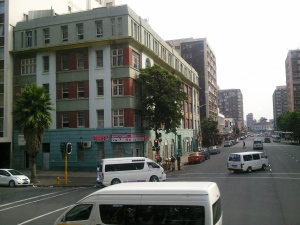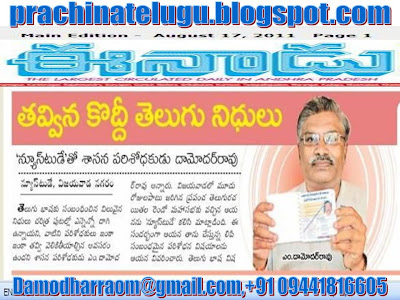The conference gave a clarion call to protect Telugu tradition and culture, Telugu language and its aesthetic and spiritual richness.
Inaugurating the conference, Finance Minister K. Rosaiah said: “Let us stop admiration of foreign lifestyle. And, say no to Mummy-Daddy culture.”
Vicious circle
It was unfortunate to note that parents often reproach children for addressing them as amma (mother) and nanna (father). Now, people in cities were accustomed to fast life. And, they don’t even know our customs, traditions and festivals like Sankranti, he said, adding: “We need to come out of this vicious circle and preserve the language and culture for posterity.”
The State government constituted a committee to study the problems of Telugus settled in other states.
The committee had already toured some states. Necessary steps would be taken to sort out the issues, he said, adding that the government, at regular intervals, would initiate dialogue with other states to address the problems of Telugus.
Promotion of arts
Earlier, WTF founder P. Jenguswami Naidu pointed out that Telugus who settled in Tamil Nadu were facing hardship like lack of Telugu medium schools.
He urged the State government to intervene and prevail upon the Tamil Nadu Government to fulfil the constitutional obligation that schools should be opened for linguistic minorities.
Culture, Information and Public Relations Minister A. Ramnarayana Reddy said that the government was taking all possible steps like conducting ‘Palnati Utsavam’, ‘Godavari Utsavalu’ to preserve and propagate the Telugu language and culture.
The government, to promote arts, was constructing mini Ravindra Bharati in every district.
While six were already in place, four more would be constructed during this year.
The government was providing Rs. 500 per month as pension to about 10,000 veteran artistes in the State, he added.
WTF president V.L. Indira Dutt said that the federation was ready to start Telugu Samskritika Niketan, a place for Telugu history, culture and tradition, atop Kailasagiri in Visakhapatnam.
Felicitated
Earlier, freedom fighter Parakala Pattabhi Rama Rao and Akasavani artiste Gayatri Sankar were felicitated with the Yarlagadda Prabhavati and Sambhu Prasadula Smaraka Puraskaram.
The WTF felicitated journalist T. Kutumba Rao, cine actor Murali Mohan, art director Thota Tarani, social worker Kanumuri Annapurnamma and stage artiste Karnati Lakshmi Narsaiah.
Cine actor and former Union Minister U.V. Krishnam Raju,
































ఎందరో మహానుభావులు